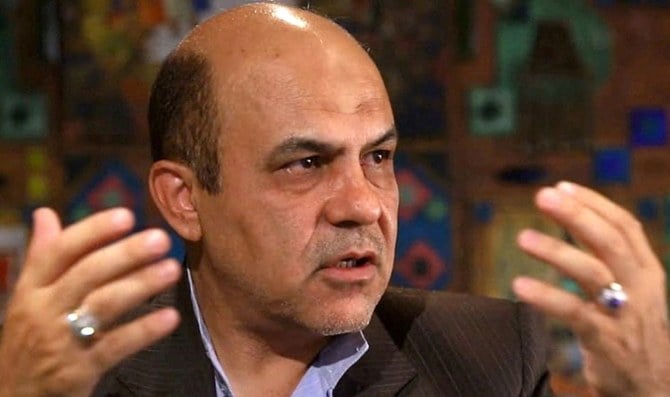
Another British citizen has reportedly been arrested in Tehran by the Iranian security forces. Kameel Ahmady, a British-Iranian anthropologist, is originally from the Kurdistan region of Iran. The timing of this arrest is interesting, as it came after tensions between the UK and Iran reached a new high due to the Islamic Revolutionary Guard Corps’ (IRGC) retaliatory seizure of a British-flagged oil tanker and its crew last month.
As is true for many Iranian court cases, the authorities are not required to and did not offer any reason for Ahmady’s arrest. According to his wife, Shafaq Rahmani, security agents raided the couple’s house and “took away documents, including his ID card.” She added that the authorities gave him an order for a one-month temporary detention without providing “any information about the reason for the arrest or the charges against Kameel.” In Iran, foreign prisoners are generally arrested on ambiguous charges such as harming national security, corruption on earth, or espionage.
Another British dual national who is currently in custody in Iran is Nazanin Zaghari-Ratcliffe. The British mother, along with her helpless then-22-month-old daughter, traveled to Iran in 2016 to visit her family on Nowruz, the Iranian new year, after the Joint Comprehensive Plan of Action was reached and sanctions against the Islamic Republic were lifted. With the change in the political climate, Zaghari-Ratcliffe, who was employed as a project manager for the Thomson Reuters Foundation, assumed she and her family would be safe. But, just as she was about to board a plane to return home, she was surrounded by IRGC officials and arrested.
The Labour MP for Hampstead, Tulip Siddiq, in January urged the British government to act and help Zaghari-Ratcliffe because her treatment was “becoming a matter of life and death.” However, Iran is ignoring ongoing requests and warnings from the British government.
Even people who are linked to British institutions are being targeted by the Iranian authorities. For example, UK-based British Council employee Aras Amiri, who is an Iranian citizen, was recently sentenced to 10 years in prison.
The British detainees are generally kept in Iran’s most notorious and brutal prison, Evin, which has been described by inmates as “hell on earth.”
The UK has unfortunately failed to obtain the release of the detainees. Even then-Foreign Secretary Jeremy Hunt admitted in May that, “despite the UK providing repeated opportunities to resolve this issue, the Iranian regime’s conduct has worsened. Having exhausted all other options, I must now advise all British-Iranian dual nationals against traveling to Iran.” He also warned: “Dual nationals face an intolerable risk of mistreatment if they visit Iran. The dangers they face include arbitrary detention and lack of access to basic legal rights, as we have seen in the case of Nazanin Zaghari-Ratcliffe, who has been separated from her family since 2016.”
It might appear ironic that the Iranian authorities are targeting British citizens while the UK is siding with the Islamic Republic, rather than the US, when it comes to the nuclear deal. Iran’s leaders evidently feel no obligation to return the favor. Instead, they continue to target innocent citizens of the UK — under fabricated charges — presumably in the hope of ransom money or possibly more geopolitical leverage.
By detaining British citizens, the Iranian regime is also attempting to pressure the UK into leaving the US-led coalition that aims to protect ships in the Strait of Hormuz. The Islamic Republic has frequently utilized hostages as political pawns and used them as leverage against other governments. This has been the modus operandi of the theocratic establishment since the revolution in 1979, starting with the takeover that year of the US Embassy in Tehran, which led to 52 Americans being held hostage for 444 days. The regime released them only after it had achieved its political, economic and ideological objectives.
The UK must not submit to Iran’s pressure, blackmail and its political game of using British citizens as hostages. The UK must hold accountable those Iranian institutions that are the main culprits: The judiciary, the Ministry of Intelligence, and the IRGC. If the UK submits to Tehran’s hostage-taking game and accepts Iran’s terms, it will only embolden and empower the regime. The British government should also level appropriate economic and political sanctions against Iran to pressure it into agreeing to stop all human rights abuses, and also to release the British citizens. It must be made clear to Iran that, apart from its unacceptable nuclear and ballistic missile build-up, the UK — and every country — will also not stand for the capture, torture and imprisonment of innocent dual citizens.
If the British government implements actions against Iran’s hostage-taking, perhaps these British captives, who most likely endure unspeakable hardship, could be free to resume their lives once again.
Dr. Majid Rafizadeh is a Harvard-educated Iranian-American political scientist. He is a leading expert on Iran and US foreign policy, a businessman and president of the International American Council. Twitter: @Dr_Rafizadeh











